
The resettlement of the Armenians citizens of the Ottoman Empire in the areas of the war theatre in 1915 and its aftermath has been an ongoing controversy between Armenians and Turks. Since the 1970’s, Armenians have been propagating that the 1915 events constitutes genocide. Turks, on the other hand, reject this characterization. This is a highly politicized controversy and, as such, it restrains scholarly study of the 1915 events and informed debates.
It was expected that for the symbolic significance of the ‘centennial’, in 2015, Armenia and Armenians in diaspora would intensify their lobbying and propaganda activities for the recognition of the 1915 events as genocide and Turkey would counteract. Analysts express their concerns about the tension during the reciprocal muscle flexing. People of prudence pin their hopes on getting over 2015 without much damage in the Armenia-Turkey and the wider regional relations that may be hard to fix later on.
Within this context, on January 29th, 2015, Armenian President Serzh Sargsyan ceremonially proclaimed The Pan-Armenian Declaration on the 100th Anniversary of the Armenian Genocide (the Declaration. Quoted at the end of this commentary). Copies of the Declaration were handed over to the Secretary-General of the United Nations and the President of the OSCE Parliamentary Assembly[1].
The significance of the Declaration stems from two reasons. First and foremost, the author of the Declaration is the State of the Republic of Armenia (RA) and as such the Declaration binds the RA. In other words, RA is liable for the Declaration. Because the addressees of the Declaration are the international community and the Republic of Turkey, in return, RA is the addressee to the international community and the Republic of Turkey for the Declaration. Therefore, the Declaration is a politically significant document. The content of the Declaration also adds more political significance to it. Second, the Declaration constitutes the blueprint of the ‘genocide politics’ that the RA is likely pursue in 2015 and the coming years.
The Declaration, with respect to its rhetoric and ‘spirit’, is not different from other RA documents or radical Armenian publications, which reflect the dominant political view in Armenia. It was written within the framework of the dominant Armenian discourse. Vague expressions, unelaborated terms and purposeful manipulations are the noticeable aspects of the Declaration. The habitual clichés such as ‘the one-and-half million innocent victims’, ‘historical justice’, ‘Turkish denial’, ‘prevention of future genocides’ take their part in the Declaration.
In addition to these familiar elements, the Declaration contains purposeful manipulations. Article 7 quoted below is a solid example:
Condemns the illegal blockade of the Republic of Armenia imposed by the Republic of Turkey, its anti-Armenian stance in international fora and the imposition of preconditions in the normalization of interstate relations, considering this a consequence of the continued impunity of the Armenian Genocide, Meds Yeghern.
To be precise, alleging that Turkey imposes an “illegal blockade” on Armenia is beyond manipulation; it is an obvious disinformation. It is true that the land border, which Armenia refrains from acknowledging, was closed after the occupation of the Azerbaijani territories by Armenia. Notwithstanding, there is no restriction of the travel of the people and shipment of goods between Armenia and Turkey.
As to the closed land border, pushing for its opening that the RA avoids to openly recognize hardly rests on a decent political rationale. The allegation of Turkey’s “anti-Armenian stance in international fora” also does not hold, given RA’s hostility to Turkey that is manifested by the genocide allegations and the disrespect to its territorial integrity.
Article 9 of the Declaration states “expresses the hope that recognition and condemnation of the Armenian Genocide by Turkey will serve as a starting point for the historical reconciliation of the Armenian and Turkish peoples”. This article reveals that RA regards “recognition and condemnation of the Armenian Genocide by Turkey” as the compulsory condition not only for the reconciliation between the states of Armenia and Turkey but also for the reconciliation between Armenians and Turks. This article invalidates Armenian propaganda that not Armenia but Turkey imposes preconditions for the normalizations of the Armenia-Turkey relations.
The Declaration contains important hints about the RA’s ‘genocide policy’:
- The chief argument of the Declaration, which other arguments are grounded on is the ‘indisputable factuality of the genocide’. RA intends to articulate its foreign policy vis-à-vis Turkey on this principle assertion.
- The RA seems to have come to the conclusion that after decades of diaspora lobbying in social and political domains and almost 10 years of ‘social diplomacy’ carried out by the Armenian and Turkish civil societies, time has come to be more demanding on Turkey. It can be seen that the RA is convinced that it has gained leverage to openly assert economic and political demands on Turkey. These demands are grouped into three: 1) material compensations, 2) return of the lands that belonged to Armenian Church and 3) territorial rearrangements. ‘Restoration of the rights of people subjected to genocide”, “establishment of historical justice”, “elimination of the consequences of the Genocide” and “restoring individual, communal and pan-Armenian rights and legitimate interests” are the grounds on which the RA aspires to raise its demands.
The most striking part of the Declaration is the 9th point of its preamble that partially states:
Appreciating… the role and significance of the Sevres Peace Treaty of 10 August 1920 and US President Woodrow Wilson’s Arbitral Award of 22 November 1920 in overcoming the consequences of the Armenian Genocide:
Reference to the Treaty of Sevres and the Wilson’s Arbitral Award indicates that the RA is planning to launch a campaign for territorial claims or at least using these claims as a political tool to push Turkey to accept more modest claims. Obviously, What Armenia is doing is a blatant and dangerous revisionism.
- Rather than improving and promoting bilateral relations with Turkey, the RA concentrates its activities to persuade the international community and stalemate Turkey by stimulating international pressure on Turkey.
- At the same time, by gaining the support of the international public opinion, the RA aspires to attempt to initiate legal processes against Turkey.
Considering the international legal documents that the Declaration refers to[2], it can be predicted that RA will construct its ‘legal strategy’ on three grounds;
- Individual rights will be one of the RA’s major emphasis. It will continue alleging that “denial of genocide” is a violation of the basic freedoms of the Armenian individuals by particularly claiming that “denial” endangers Armenians’ very right to live free from fear of aggression.
- In order to pursue its policy on this line, the RA will try to conceal the fact that genocide is a strictly legal term that is narrowly defined by the United Nations Convention on the Prevention and Punishment of the Crime of Genocide. Instead, it will continue to impose the view that substantial number of death is sufficient to label an event as genocide. For that, the RA will try to embed genocide allegations within the framework of the broadly defined ‘crimes against humanity’. This will also be done to propagate for the “non-applicability of statutory limitations”.
- The Jewish Holocaust will continue to be the main reference point of the genocide allegations; ‘genocide’ will be represented as the ‘Armenian Holocaust’. This will be one of the main pillars of the RA’s ‘genocide politics’ that will seek to address to the ‘good-will’ of the international public opinion as a way to exert pressure and gain influence on international legal bodies.
However, the success of this legal strategy is doubtful for two reasons. First and foremost, international legal documents that the Declaration refers to and other international treaties that bind Armenia, Turkey and the third countries invalidate RA’s demands. Secondly, dominant Armenian discourse that is reflected by the Declaration reveals the inability of the Armenian side to pursue legal processes. In a nutshell, vague expressions, unelaborated allegations and legally invalid terms such as “historical justice” display the hardship that awaits the RA. Likewise, the expression of “all other international documents on human rights” in the 4th paragraph of the preamble of the Declaration contradicts the necessary legal outlook that requires precision. Above all, the usage of the very narrowly framed legal term genocide to define the events of 1915 per se contradicts not only the legal strategy of the RA, but also contradicts the decades long lobbying of the Armenians that seeks the imposition of the characterization of the 1915 events as genocide by dragging the discourse onto political grounds.
From these and the entirety of the Declaration the following can be foreseen:
- Reliance on the ‘indisputable factuality of the genocide’ as the basis of ‘genocide politics’, first and foremost, will direct the RA to impose that view on the international community. For that, the RA will aim to overshadow the fact that genocide is a narrowly defined strictly legal term.
- To do that, the RA’s main strategy will be to prevent not only public but also scholarly debates about the 1915 events. For that, the RA will rely on three basic methods: delegitimization and criminalization of the views other than the Armenian one and demagogy. In order to delegitimize views on the 1915 events notwithstanding the Armenian ones, the RA will stigmatize those views as ‘Turkish propaganda’. Whereas those support the Armenian view will be honored as courageous, righteous and “people of good will”, others will be blamed with derogatory labels. Furthermore, alternative views per se will be libeled “dangerous”. Besides delegitimization, in order to preclude all kinds of discussions of the 1915 events, the RA will try to criminalize alternative views through court decisions. In the meantime, a propagandist discourse that will be reinforced by one-sided demagogical rhetoric based on “one-and-a-half million innocent [Armenian] victims” will continue to be circulated.
- Although, this strategy might help the RA to gain the sympathy of the international community, it will also create a dilemma for the RA when it initiates legal processes. The RA will try to overcome this challenge by relying on the pressure of the international community on the international legal bodies. In other words, the RA’s propaganda will target the sympathy of the international communities and via that sympathy a ‘moral superiority’ vis-à-vis Turkey.
- The RA’s attempts to delegitimize and criminalize alternative views and imposition of the Armenian view as the ‘absolute truth’ will have adverse effects on the scholarly attempts to fully comprehend the 1915 events. All scholarly attempts to reveal the primary and secondary aspects of the 1915 will be associated in one way or another, directly or indirectly with ‘Turkish propaganda’. This will necessitate the responsible scholars, no matter what view they have on the 1915 events, to remain true to the academic ethics and moral imperatives and stand against this sort of attempts that would prevent scholarly research and discussion and defend the right and necessity of the multi-dimensional free and independent scholarly research, which is the only way to find the truth.
Finally, the following can said as to the Declaration and the new ‘era’ it opened with respect Armenia-Turkey relations:
1) The Declaration certifies that the post-1998 transformation of the RA policy vis-à-vis Turkey has been finalized
From the independence in 1991 to 1998, Armenia’s relationship with Turkey had been ambiguous. Yet, since the presidency of Robert Kocharyan in 1998, the RA adopted a plainly antagonistic policy towards Turkey despite few isolated reconciliatory steps such as ‘Football Diplomacy’ in 2008 and the Armenia-Turkey Protocols in 2009. The Declaration demonstrates that the gradual transformation of the RA’s policy vis-à-vis Turkey into a radically belligerent one has been finalized. The Declaration unequivocally demonstrates that the RA decided to pursue a policy based on hostility and bellicosity towards Turkey with disrespectful and hostile assertions and demands.
2) Turkey’s opponent with respect to the genocide allegations and the targeted hostility is the RA
Since the independence of the RA in 1991, Turkey and Turkish political analysts have been predisposed to perceive the RA and the diaspora as distinct entities. Whereas the diaspora has been viewed as the party that complicates relationship between Armenia and Turkey by perpetuating the decades old hostilities and imposing them on the RA’s foreign policy vis-a-vis Turkey, the RA has been perceived as the party with which historical problems could be overcome through joint efforts.
The Declaration manifests that this view has no validity any more. Instead, it demonstrates that with respect to the hostility towards Turkey, the Armenian diaspora and the RA constitute a single bloc. As such and regarding the basic international rules and norms, it is likely that Turkey will revise its perception of the RA and designate this country as its opponent with respect to the demands for compensations and territorial rearrangements as the main constituent of the genocide allegations.
3) Revision of the Turkish policy vis-à-vis Armenia
Extending appreciation to the Treaty of Sevres and the US President Woodrow Wilson’s Arbitral Award is likely to be perceived not only as a provocative action by Turkey but as an outright act of hostility. This may lead Turkey to code Armenia as an aggressive state and consequently revise its national security priorities.
This would cause the reversal of the recently developing affirmative approach of Turkey vis-à-vis Armenia that was exemplified by the Armenia-Turkey Protocols in 2009. Particularly, calls that sound like ultimatums such as the Article 8 of the Declaration may evoke further reactions from the Republic of Turkey.
Radicalization of the Armenian demands and the intervention of the third parties by taking the advantage of the further internationalization of the ‘genocide politics’ may create a perception of stalemate at the side of Turkey. This may also facilitate Turkey’s policy revision vis-à-vis Armenia. Consequently, the prospects of the opening of the land border between Armenia and Turkey and the establishment of diplomatic relations may be postponed to an indefinite future.
The further worsening of the Armenia-Turkey relations would have negative effects on the wider Caucasus region. Notwithstanding the interests of the countries of the South Caucasus, this may further crystalize competing regional camps composed of Azerbaijan, Georgia and Turkey, on the one hand, and Armenia, Russia and Iran, on the other. This situation may also cause Armenia’s further alienation from the Western bloc and its further enslavement within the Russian orbit.
4) Reactions from the Turkish Civil Society
The demands expressed by the Declaration may provoke the reaction of the Turkish civil society. Among the sections of the Turkish civil society that advocate the idea of empathy with the Armenians with a sincerely humanistic outlook, a feeling of abuse of their friendliness may develop. This may cause a backlash that would evaporate the achievements of the dialogue between Armenian and Turkish civil society. As such, RA’s disrespectful and hostile policy may weaken the affirmative interest of the Turkish society to the ‘Armenian question’ and the civil dialogue between Armenians and Turks.
5) The RA’s further economic and political dependence on the diaspora
The RA’s attempt to further internationalize genocide allegations and the related demands will necessitate agents for lobbying in the civil societies, educational institutions, national parliaments and supra-state organizations. The main agent of the RA will be the radical sections of the Armenian diaspora organized in the resourceful countries such as the USA and France.
Employment of the radical sections of the diaspora as the agent for lobbying will legitimize and strengthen the influence of the diaspora in Armenian politics and society. The result of that may be the enslavement of the Armenian society to the abstract and unrealistic passions of the diaspora that develop in European countries and the USA which have dramatically different social, cultural, political and economic realities. Hence, policies formulated in the USA, France or any other country and imposed on Armenia would hardly deliver sound and realistic solutions to the social problems of the Armenian society.
6) An orientalist outline will dominate the RA’s discourse in the international domain
In addition to the diaspora, further internationalization of the genocide allegations will dictate the RA to rely more on the non-Armenian ‘Armenophile’ circles as its propaganda machinery. The RA’s reliance on the ‘Armenophile’ circles will surrender the RA’s discourse and policies to an orientalist framework. Within this framework, Islamophobic and Turcophobic elements are likely to dominate the Armenian discourse. That will mean the imposition of a discourse incompatible with the socio-cultural peculiarities of the Caucasian region with an effect of the rise of a perception of Armenia as an alien entity in the region. That will result in the deepening of the isolation and loneliness of Armenia, and in consequence, Armenians.
7) Further loss of the capacity of autonomous action in the international domain
Internationalization of the ‘genocide politics’ will also have an impact on the foreign policy of RA with its effects on the RA’s national interests. Countries that have political and economic interests on the Caucasus region may perceive the RA’s attempts to internationalize the genocide allegations as an opportunity to impose their political wills on Armenia. The ‘Great Powers’ may expect political and economic benefits from the RA as a payback for example for passing genocide bills in their parliaments.
On the other hand, as a response to the Armenian propaganda in the international domain, Turkey would use its geostrategic and other assets to counterbalance pro-Armenian activities. This may result in similar impasses with Armenia for Turkey. As such, the only winner of the RA’s attempt to further the internationalization of the genocide allegations would be the ‘major international players’.
8) Legalization of the ‘genocide politics’ is doomed to failure
The RA’s attempt to ‘legalize’ the ‘genocide politics’ is likely to have counter-effects. First, pursuing ‘genocide politics’ through legal means will reveal the basic fact that is overlooked, including by some distinguished scholars, that genocide is strictly a legal term that is defined by the UN Convention on the Prevention and Punishment of the Crime of Genocide mentioned above. When this basic fact is brought to the attention of the international community, the RA’s propaganda based on a discourse of victimhood, and inflated numbers of losses and extended dates will lose its appeal. The RA will need to leave aside its demagogical discourse and adopt another one that is appropriate for the legal process that necessitates evidence-based, valid, concrete, unperturbed argumentation. Therefore, a tension will grow between the decades old demagogical propagandist discourse and realistic, precise legal discourse.
Second, pursuing the ‘genocide politics’ through legal means will necessitate the objective examination of the 1915 events. This will invalidate the studies conducted by historians--as-propagandists that constitute the backbone of the literature on the 1915 events. Objective examination of the 1915 events will also dictate an ‘historical commission’ composed of Armenian, Turkish and international scholars. Establishment of such a commission will invalidate the demagogical Armenian discourse based on moral imperatives. It must be remembered that the RA radically opposes such a commission,
Third, legalization of the ‘genocide politics’ would expose the RA’s propagandist attempts to delegitimize and criminalize all the views that challenge the Armenian view and the contradiction of this attitude to some fundamental human rights such as freedom of expression.
...........................................................................................................................................................................................................................................................................................................................................................................................................................................
Pan-Armenian Declaration on the Centennial of the Armenian Genocide
The State Commission on the Coordination of Events Dedicated to the 100th Anniversary of the Armenian Genocide, in consultation with its regional committees in the Diaspora,
-expressing the united will of the Armenian people,
-based on the Declaration of Independence of Armenia of 23 August 1990 and the Constitution of the Republic of Armenia,
-recalling the United Nations Universal Declaration of Human Rights of 10 December 1948, whereby recognition of the inherent dignity and of the equal and inalienable rights of all members of the human family is the foundation of freedom, justice and peace in the world,
-guided by the respective principles and provisions of the United Nations General Assembly Resolution 96(1) of 11 December 1946, the United Nations Convention on the Prevention and Punishment of the Crime of Genocide of 9 December 1948, the United Nations Convention on the Non-Applicability of Statutory Limitations to War Crimes and Crimes Against Humanity of 26 November 1968, the International Covenant on Civil and Political Rights of 16 December 1966 as well as all the other international documents on human rights,
-taking into consideration that while adopting the Convention on the Prevention and Punishment of the Crime of Genocide, the United Nations specifically underlined the importance of international cooperation in the struggle against that criminal offence,
-emphasizing the inadmissibility of impunity of the constituent elements of the crime of genocide and the non-applicability of statutory limitation thereto,
-condemning the genocidal acts against the Armenian people, planned and continuously perpetrated by the Ottoman Empire and various regimes of Turkey in 1894-1923, dispossession of the homeland, the massacres and ethnic cleansing aimed at the extermination of the Armenian population, the destruction of the Armenian heritage, as well as the denial of the Genocide, all attempts to avoid responsibility, to consign to oblivion the committed crimes and their consequences or to justify them, as a continuation of this crime and encouragement to commit new genocides,
- also considering the 1919-1921 verdicts of the courts-martial of the Ottoman Empire on that grave crime perpetrated “against the law and humanity’’ as a legal assessment of the fact,
- appreciating the joint declaration of the Allied Powers on May 24, 1915, for the first time in history defining the most heinous crime perpetrated against the Armenian people as a “crime against humanity and civilization” and emphasizing the necessity of holding Ottoman authorities responsible, as well as the role and significance of the Sevres Peace Treaty of 10 August 1920 and US President Woodrow Wilson’s Arbitral Award of 22 November 1920 in overcoming the consequences of the Armenian Genocide:
1. Commemorates one-and-a-half million innocent victims of the Armenian Genocide and bows in gratitude before those martyred and surviving heroes who struggled for their lives and human dignity.
2. Reiterates the commitment of Armenia and the Armenian people to continue the international struggle for the prevention of genocides, the restoration of the rights of people subjected to genocide and the establishment of historical justice.
3. Expresses gratitude to those states and international, religious and non-governmental organizations that had political courage to recognize and condemn the Armenian Genocide as a heinous crime against humanity and even today continue to undertake legal measures to that end, also preventing the dangerous manifestations of denialism.
4. Expresses gratitude to those nations, institutions and individuals, who often endangering their lives, provided multifaceted humanitarian assistance and rescued many Armenians facing the threat of total annihilation, created safe and peaceful conditions for the survivors of the Armenian Genocide, thus promoting orphan care and the international Armenophile movement.
5. Appeals to UN member states, international organizations, all people of good will, regardless of their ethnic origin and religious affiliation, to unite their efforts aimed at restoring historical justice and paying tribute to the memory of the victims of the Armenian Genocide.
6. Expresses the united will of Armenia and the Armenian people to achieve worldwide recognition of the Armenian Genocide and the elimination of the consequences of the Genocide, preparing to this end a file of legal claims as a point of departure in the process of restoring individual, communal and pan-Armenian rights and legitimate interests.
7. Condemns the illegal blockade of the Republic of Armenia imposed by the Republic of Turkey, its anti-Armenian stance in international fora and the imposition of preconditions in the normalization of interstate relations, considering this a consequence of the continued impunity of the Armenian Genocide, Meds Yeghern.
8. Calls upon the Republic of Turkey to recognize and condemn the Armenian Genocide committed by the Ottoman Empire, and to face its own history and memory through commemorating the victims of that heinous crime against humanity and renouncing the policy of falsification, denialsm and banalizations of this indisputable fact.
Supports those segments of Turkish civil society whose representatives nowadays dare to speak out against the official position of the authorities.
9. Expresses the hope that recognition and condemnation of the Armenian Genocide by Turkey will serve as a starting point for the historical reconciliation of the Armenian and Turkish peoples.
10. Proudly notes that during the last century the Armenian people, having survived the Genocide,
- Demonstrated an unbending will and national self-consciousness and restored its sovereign statehood, lost centuries ago,
- Preserved and developed national values, achieved the renaissance of their national culture, science and education, bringing its unique contribution to the development of world heritage,
- established a powerful and effective network of religious and secular institutions in the Armenian Diaspora, thus contributing to the preservation of their Armenian identity in Armenian communities worldwide, the shaping of a respected and esteemed image of the Armenian, and the protection of the legitimate rights of the Armenian people,
- united and restored the national gene pool that was facing extermination as a result of the Genocide, through a pan-Armenian cooperation and extensive repatriation program,
- made its valuable contribution to international peace and security during the First and the Second World Wars and won glorious victories in the heroic battle of Sardarapat and the Artsakh war.
11. Considers the 100th anniversary of the Armenian Genocide an important milestone in the ongoing struggle for historical justice under the motto “I remember and demand”.
12. Calls upon the coming generations of Armenians to protect their sacred native heritage with patriotism, consciousness and intellect and resolutely struggle and serve for:
- a stronger Homeland, free and democratic Republic of Armenia,
- the progress and strengthening of independent Artsakh,
- the efficient unity of Armenians worldwide,
- the realization of the centuries-old sacrosanct goals of all Armenians.
[1] http://www.president.am/en/press-release/item/2015/01/29/President-Serzh-Sargsyan-visit-Tsitsernakaberd-Genocide/ (latest access 16.03.2015)
https://www.armenianow.com/genocide/60885/armenia_genocide_declaration_geghamyan_osce_parliamentary_assembly (latest access 16.03.2015).
[2] These international legal documents are:
-United Nations Universal Declaration of Human Rights of 10 December 1948.
-United Nations General Assembly Resolution 96(1) of 11 December 1946.
-United Nations Convention on the Prevention and Punishment of the Crime of Genocide of 9 December 1948.
-United Nations Convention on the Non-Applicability of Statutory Limitations to War Crimes and Crimes Against Humanity of 26 November 1968.
-International Covenant on Civil and Political Rights of 16 December 1966.
© 2009-2025 Center for Eurasian Studies (AVİM) All Rights Reserved
No comments yet.
-
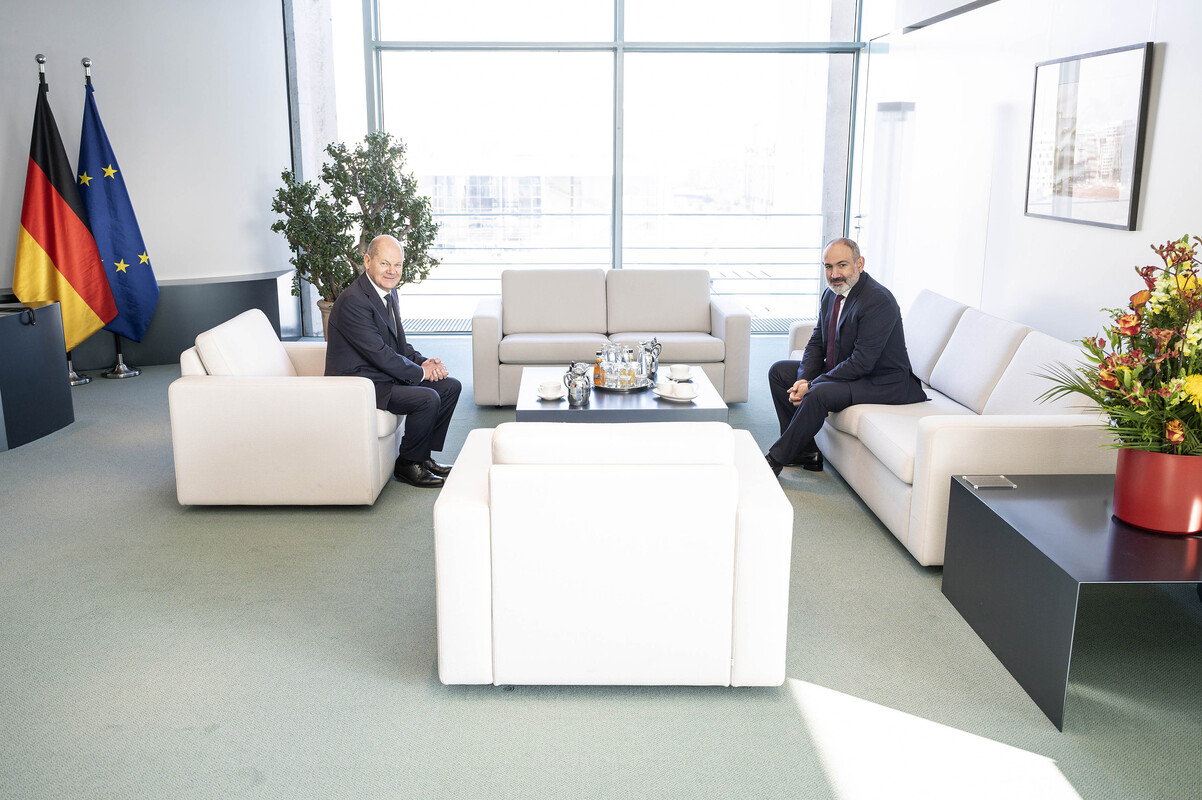 PASHINYAN'S GERMANY VISIT
PASHINYAN'S GERMANY VISIT
Turgut Kerem TUNCEL 09.03.2023 -
 BECOMING THE PART OF THE PROBLEM: THE FAULTY POLICIES OF THE WEST IN EURASIA AND THE SOUTH CAUCASUS
BECOMING THE PART OF THE PROBLEM: THE FAULTY POLICIES OF THE WEST IN EURASIA AND THE SOUTH CAUCASUS
Turgut Kerem TUNCEL 11.08.2015 -
 THE JUDGEMENT OF THE EUROPEAN COURT OF HUMAN RIGHTS GRAND CHAMBER ON PERİNÇEK v. SWITZERLAND CASE in PERSPECTIVE - 2: THREE DISQUALIFIED ARGUMENTS AND “THE PREVENTION OF DISORDER”
THE JUDGEMENT OF THE EUROPEAN COURT OF HUMAN RIGHTS GRAND CHAMBER ON PERİNÇEK v. SWITZERLAND CASE in PERSPECTIVE - 2: THREE DISQUALIFIED ARGUMENTS AND “THE PREVENTION OF DISORDER”
Turgut Kerem TUNCEL 23.10.2015 -
 THE GRAIN INITIATIVE AND THE BLACK SEA SECURITY - II
THE GRAIN INITIATIVE AND THE BLACK SEA SECURITY - II
Turgut Kerem TUNCEL 03.08.2023 -
 THE EUROPEAN COURT OF HUMAN RIGHTS’ APPROACH TO NEGATIONISM AND REVISIONISM AND SOME DEDUCTIONS ON PERINÇEK V. SWITZERLAND CASE
THE EUROPEAN COURT OF HUMAN RIGHTS’ APPROACH TO NEGATIONISM AND REVISIONISM AND SOME DEDUCTIONS ON PERINÇEK V. SWITZERLAND CASE
Turgut Kerem TUNCEL 16.11.2015
-
 SHIFTING PARADIGMS: ELECTION INTERFERENCE AND DEMOCRATIC INTEGRITY IN THE OSCE REGION
SHIFTING PARADIGMS: ELECTION INTERFERENCE AND DEMOCRATIC INTEGRITY IN THE OSCE REGION
Teoman Ertuğrul TULUN 24.01.2025 -
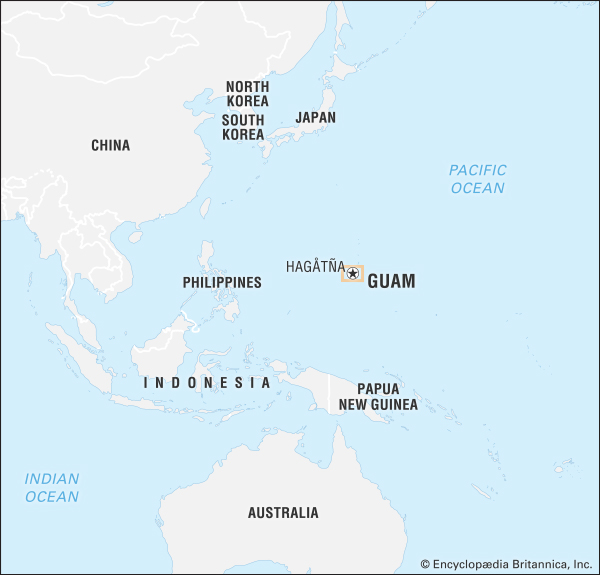 UNITED STATES OF AMERICA CONTINUES ITS HABITS
UNITED STATES OF AMERICA CONTINUES ITS HABITS
Hazel ÇAĞAN ELBİR 08.02.2018 -
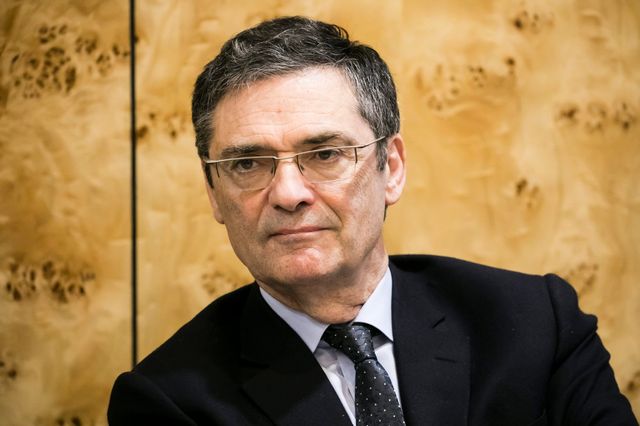 PATRICK DEVEDJIAN: A NEO-FASCIST WHO WAS A LIFE-LONG SUPPORTER OF TERRORISM
PATRICK DEVEDJIAN: A NEO-FASCIST WHO WAS A LIFE-LONG SUPPORTER OF TERRORISM
Maxime GAUIN 02.04.2020 -
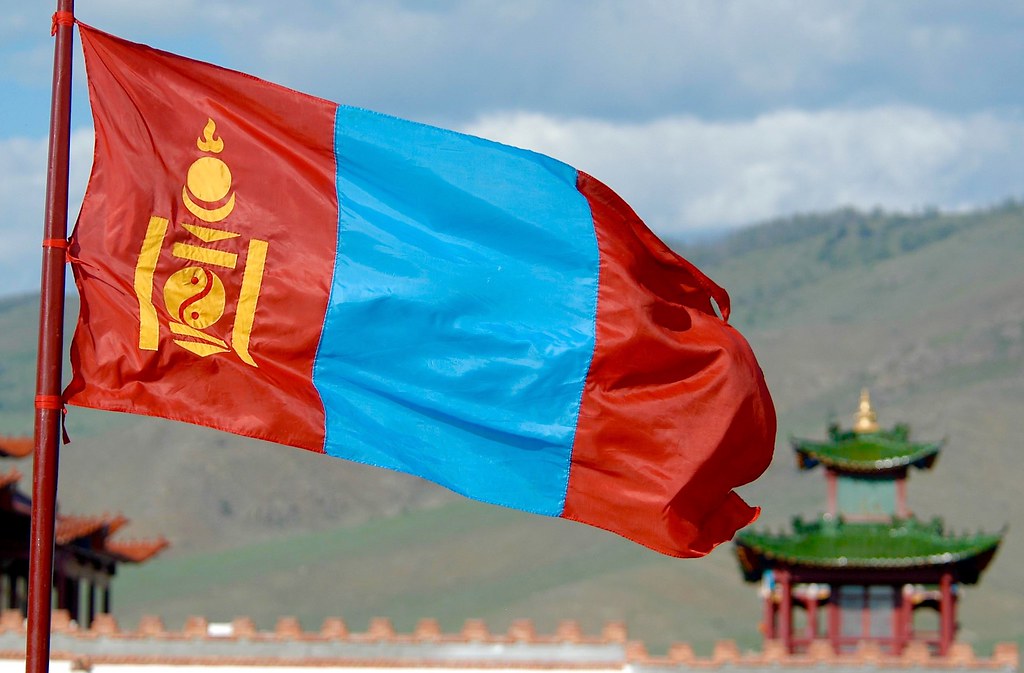 MONGOLIA’S SEARCH FOR BALANCE IN ITS FOREIGN POLICY
MONGOLIA’S SEARCH FOR BALANCE IN ITS FOREIGN POLICY
Gülperi GÜNGÖR 28.08.2020 -
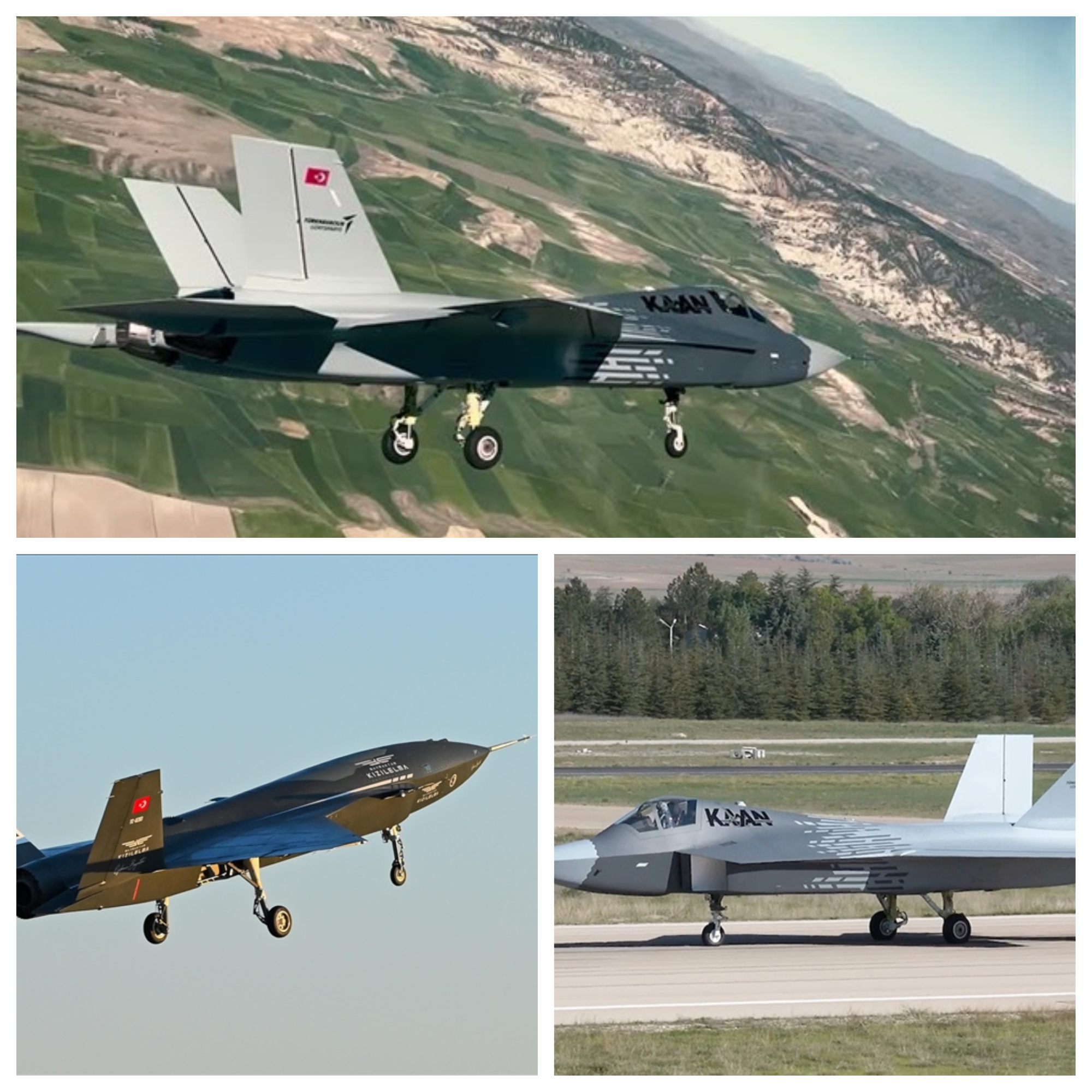 ESTABLISHING THE DELICATE BALANCE BETWEEN STRATEGIC AUTONOMY AND STRATEGIC INTERDEPENDENCE: THE CASE OF TÜRKIYE
ESTABLISHING THE DELICATE BALANCE BETWEEN STRATEGIC AUTONOMY AND STRATEGIC INTERDEPENDENCE: THE CASE OF TÜRKIYE
Teoman Ertuğrul TULUN 05.08.2025
-
25.01.2016
THE ARMENIAN QUESTION - BASIC KNOWLEDGE AND DOCUMENTATION -
12.06.2024
THE TRUTH WILL OUT -
27.03.2023
RADİKAL ERMENİ UNSURLARCA GERÇEKLEŞTİRİLEN MEZALİMLER VE VANDALİZM -
17.03.2023
PATRIOTISM PERVERTED -
23.02.2023
MEN ARE LIKE THAT -
03.02.2023
BAKÜ-TİFLİS-CEYHAN BORU HATTININ YAŞANAN TARİHİ -
16.12.2022
INTERNATIONAL SCHOLARS ON THE EVENTS OF 1915 -
07.12.2022
FAKE PHOTOS AND THE ARMENIAN PROPAGANDA -
07.12.2022
ERMENİ PROPAGANDASI VE SAHTE RESİMLER -
01.01.2022
A Letter From Japan - Strategically Mum: The Silence of the Armenians -
01.01.2022
Japonya'dan Bir Mektup - Stratejik Suskunluk: Ermenilerin Sessizliği -
03.06.2020
Anastas Mikoyan: Confessions of an Armenian Bolshevik -
08.04.2020
Sovyet Sonrası Ukrayna’da Devlet, Toplum ve Siyaset - Değişen Dinamikler, Dönüşen Kimlikler -
12.06.2018
Ermeni Sorunuyla İlgili İngiliz Belgeleri (1912-1923) - British Documents on Armenian Question (1912-1923) -
02.12.2016
Turkish-Russian Academics: A Historical Study on the Caucasus -
01.07.2016
Gürcistan'daki Müslüman Topluluklar: Azınlık Hakları, Kimlik, Siyaset -
10.03.2016
Armenian Diaspora: Diaspora, State and the Imagination of the Republic of Armenia -
24.01.2016
ERMENİ SORUNU - TEMEL BİLGİ VE BELGELER (2. BASKI)
-
AVİM Conference Hall 24.01.2023
CONFERENCE TITLED “HUNGARY’S PERSPECTIVES ON THE TURKIC WORLD"









